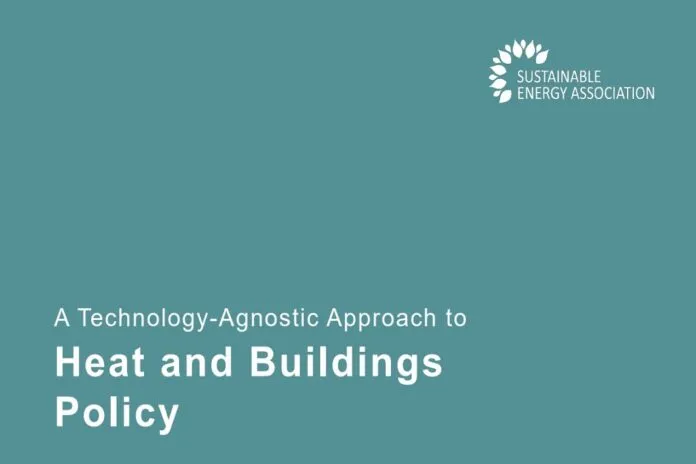
The Sustainable Energy Association (SEA) has released a new report titled ‘A Technology-Agnostic Approach to Heat and Buildings Policy’. The report details the benefits of a technology-agnostic approach to decarbonising buildings.
The SEA and Partners welcomed the government’s drive towards low-carbon heating systems in buildings as part of the Net-Zero agendat. The chancellor’s Autumn Statement reinforced these commitments through the announcement of the Energy Efficiency Taskforce, delivering overdue reductions in energy demand and an ambition to reduce energy consumption by 15% by 2030.
The association has long advocated for a ‘fabric-first’ holistic approach to decarbonising buildings. This report aims to explain why incorporating a diverse range of low-carbon technologies into heat and buildings policy is crucial to delivering Net Zero, SEA representatives said.
Jade Lewis, chief executive of the SEA, said: “The SEA is steadfast in its commitments to deliver living and working space fit for future generations. To help us realise this vision, government policy for heat and buildings needs to be long term and joined-up, taking a fabric-first, holistic and technology-agnostic approach.
“This report lays the foundations as to why these policies should take into consideration a wider range of technologies, so that we can provide homes and buildings with the best solutions for Net Zero.”
Bim Afolami, MP, added: “SEA’s latest report emphasises the need for flexible, low carbon and smart technologies to be at the centre of home heat solutions. Our built environment is historically complex and diverse, so a range of interventions are needed across the domestic heat market.
“This report sets out the need for a variety of data-driven, market-led and bottom-up approaches to decarbonise construction, diversify supply, promote cost-efficiency and support delivery. The contributors to this report have done the legwork to demonstrate how this can be achieved in line with our mission to reach Net Zero by 2050.“
